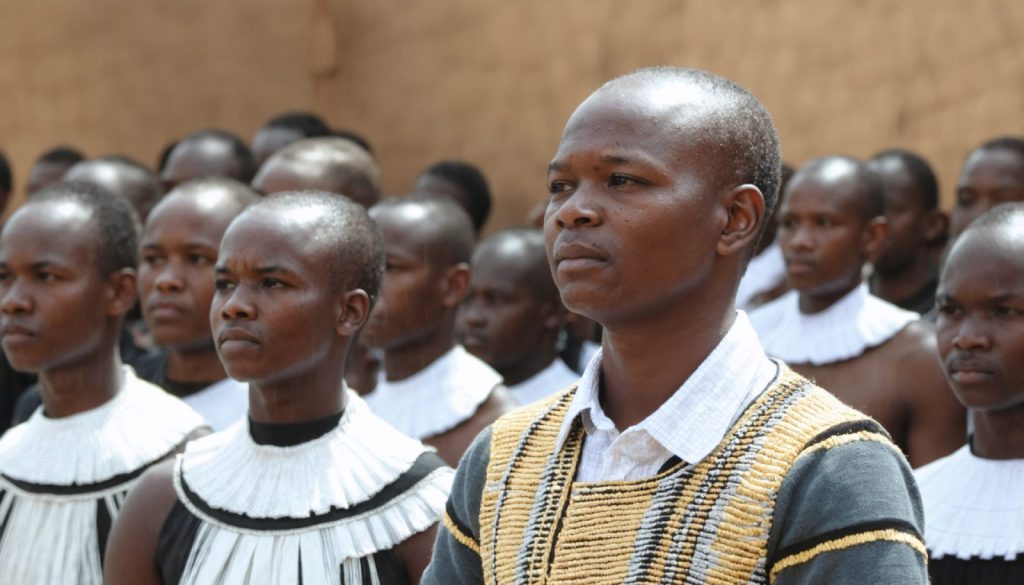
- Eswatini’s legal system uniquely combines Roman-Dutch law with traditional customary laws, reflecting both colonial history and indigenous culture.
- Civil disputes, such as contracts and matrimonial matters, are resolved through a hybrid legal system that respects both formal statutes and age-old wisdom.
- Customary laws, governed by community leaders, address issues like marriage and land tenure based on cultural practices and social mores.
- The dual legal system offers resilience by preserving community identity while integrating global legal standards and human rights considerations.
- Eswatini exemplifies how traditional and modern legal practices can coexist, promoting a society that honors its past while adapting to future needs.
Nestled in southern Africa lies Eswatini, a kingdom where the rhythms of tradition hum alongside the march of modernity. Civil law in this jewel of Africa operates under a fascinating interplay of ancient customs and contemporary statutes, weaving a legal tapestry as rich and vibrant as the nation’s landscapes.
Picture a courtroom in Eswatini, where the sun casts long, golden shadows through expansive windows, illuminating the careful deliberations of a judge. This is no ordinary judicial setting; it is one that respects duality. The legal system here respects both Roman-Dutch law—a legacy of colonial influence—and traditional customary laws, binding them in a unique dance of justice.
Civil disputes—from contract issues to matrimonial matters—often find resolution in a hybrid system where formal legalese meets age-old wisdom. Witness a contract dispute, for instance, as it unfurls before the court. Here, lawyers articulate cases in the precise vernacular of Roman-Dutch principles, while chiefs and elders may be consulted to lend cultural insights that resonate deeply with Swati society’s ethos.
The fascinating coexistence of these legal traditions creates a dynamic landscape. Customary laws, unwritten and passed down through generations, govern matters like marriage, land tenure, and community disputes. These customary proceedings happen under the watchful eye of community leaders, who interpret laws based on social mores and respect longstanding cultural practices.
This dual legal system’s challenges and benefits are multifaceted. On one hand, the reliance on traditional law ensures that communities maintain their identity and autonomy. On the other, global influences and human rights considerations demand adaptation and integration of these customs into broader legal contexts.
Eswatini’s legal landscape is not just a relic of the past; it is a vibrant, evolving tapestry that reflects the kingdom’s ambition to harmonize progress and tradition. The country continually evaluates its legal frameworks against the backdrop of international law, fostering a system that aims to protect its citizens while respecting cultural authenticity.
Eswatini teaches us a vital lesson in resilience and adaptation. In an era where globalization pressures uniformity, Eswatini boldly preserves its dual legal heritage, a testament to the strength found in diversity. This balance, between respecting time-honored customs and embracing necessary modernization, underscores a profound takeaway: A society’s legal framework can be its pulse, reflecting its values and aspirations.
Eswatini’s civil law is more than a set of rules; it is a living narrative, inviting the world to witness how tradition and modernity can coexist, not as adversaries but as partners, crafting a society that thrives on its rich, complex history and its forward-looking vision.
Discover the Unique Legal Tapestry of Eswatini: Where Tradition Meets Modernity
Understanding Eswatini’s Dual Legal System
Eswatini, a nation in southern Africa, embodies a vibrant blend of modernity and tradition, particularly in its legal system. The country operates under a dual legal framework that combines Roman-Dutch law—a remnant of its colonial past—with customary laws derived from long-standing cultural practices. This dynamic merger reflects a society deeply rooted in history while striving to adapt to contemporary global standards.
How the Dual Legal System Functions
1. Roman-Dutch Law: This system governs statutory laws, providing a structured framework akin to Western legal systems. It is utilized in civil disputes that require formal legal understanding, such as contract law and formal agreements.
2. Customary Law: These are unwritten guidelines that have been passed through generations, focusing on community-centered issues such as marriage (lobola or bride price practices), land rights, and community disputes. Community leaders or chiefs usually preside over these traditional courts, interpreting laws based on cultural customs and societal norms.
Challenges and Benefits
Challenges:
– Integration with Global Norms: As Eswatini integrates more with global economic and legal systems, there is pressure to align the customary laws with international human rights standards.
– Codification Issues: Unwritten customary laws can lead to inconsistencies and difficulties in enforcement and interpretation, making modernization a challenge without losing cultural essence.
Benefits:
– Cultural Preservation: The dual system helps preserve indigenous culture, ensuring that modernization doesn’t erase historical identity.
– Community Involvement: Decisions in customary courts often reflect community sentiment, providing resolutions that resonate deeply within society.
Real-World Use Cases
– Marriage Laws: Customary marriages can be recognized under civil law if specific registration processes are followed, bridging traditional and modern legal practices.
– Land Tenure: Disputes over land are often settled by traditional courts, with insights from elders ensuring decisions honor traditional land rights and heritage.
Market Forecasts & Industry Trends
With the increasing role of international actors in African markets, there is a growing trend towards harmonizing traditional practices with modern legal frameworks to attract foreign investment while safeguarding cultural values. This can spur development in areas like tourism and real estate, where legal certainty is critical.
Insights & Predictions
As Eswatini continues to balance its dual legal system, future developments could include:
– Codification of Customary Law: Efforts may increase to document customary laws systematically, helping create more consistent legal standards.
– Enhanced Legal Education: Training more legal professionals in understanding both legal systems could ensure robust application and integration.
How to Navigate Eswatini’s Legal Landscape
1. Seek Local Expertise: Engage with legal professionals familiar with both Roman-Dutch and customary law for personalized guidance.
2. Understand Cultural Contexts: Respect the cultural nuances that influence legal processes and community decisions.
Actionable Recommendations
– For Businesses: When entering Eswatini markets, conduct thorough research or consult local legal advisors to navigate the dual systems effectively.
– For Legal Professionals: Enhance skills by learning about local customs and traditions to better address legal challenges.
Conclusion
Eswatini serves as a case study for countries with multiple legal systems aiming to harmonize traditional practices with modern legal requirements. Through resilience and adaptation, Eswatini illustrates the potential to cherish cultural identities while embracing modernization. For a deeper understanding of Eswatini and its legal frameworks, visit the official Eswatini tourism site.



